- Home
- Kristen Callihan
Ember: A prequel to Firelight Page 3
Ember: A prequel to Firelight Read online
Page 3
He moved his hand to the bandages. The linen gaped enough that Smith could see Archer’s face and what had become of it.
The man’s brows rose but he didn’t scare, Archer would give him that. He whistled low and long. “Can’t say as I’ve ever seen that particular malady.”
“Doubtless.” Archer smoothed the linen back in place.
He was thankful that Smith didn’t ask him how he’d gotten this way. He admired a man who knew when to keep his curiosity to himself.
Smith finished his drink, then stood. “Well, I’d best get packing.” Smith stretched in a lazy fashion, the joints at his neck and back popping in protest.
Archer rose and they were nearly eye-to-eye. “When?”
“We’ll meet here, an hour before dawn.”
Two days later, Smith brought him before the Huichol’s holy man to plead his case.
Archer’s meeting with the shaman, as Smith called him, had been brief but effective. Facing the solemn Indian, he had taken off his linen entirely and revealed what he’d become. There was no fear or outright shock, and Archer soon realized that these holy men of the Americas were of a different philosophy than most men. They seemed to view life not as something filled with fear, but as filled with mystery and acceptance. There were few questions— mainly, what did Archer expect to find? When Archer said a cure, the shaman simply nodded and continued to gaze at him thoughtfully.
Now Archer was a week out on a pilgrimage to the Huichol’s holy land of Wiricuta. From what Archer could get out of Smith, it would be there that they would gain access to a portal to another reality. There, his questions would be answered. Any proper Englishman would believe the whole exercise to be both folly and madness, but Archer had taken a personal peek behind the velvet curtain of reality. He knew now that there were things that went far beyond the realm of traditional human understanding.
Forbidden to bathe, eat proper meals, or have a proper night’s sleep while on the pilgrimage, his traveling party was now a foul-smelling, hazy-eyed group. The hot, bright sun beat down on their backs, and heads hung low. Even so, a sense of peace and purpose filled these travelers. Like a balm, it smoothed out over the entire group.
As for Archer, aside from his smelling like a West End guttersnipe, the lack of sleep or food hardly affected him.
His body was simply too strong now, and any sense of peace recoiled when faced with his desperation.
“Ceremony’s tonight,” Smith said, breaking into Archer’s thoughts. The rivers of wrinkles spreading out from the corners of Smith’s eyes deepened as he squinted into the sinking sun. “You sure you want to do this?”
When Archer simply looked at him, Smith elaborated. “Some white men who do this don’t come back, you know. I think it’s because their orderly minds can’t comprehend what cannot be explained. So they go mad. Their body is fine, sure, but they’re never right in the head again.” He scratched the thick, grizzled stubble along his jaw. “Worse than dying if you ask me.”
And if a man couldn’t die? Had Smith any idea what hell that was? Archer refrained from asking.
“I’ll return,” he said. He’d do anything now.
Smith made a sound of black humor. “You had better. Or I’m leaving your ass here. I ain’t dragging no drooling Englishman all the way back from hell.”
London, April 18, 1879
There was a blister on Miranda’s foot that was likely the size of the English Channel at this point. Deep tremors had plagued the muscles along her back since she started out this morning. They would not end until she was safely shut within the walls of her own bedroom. Maybe not even then. It was getting harder and harder to ignore the fear and the guilt that came with stealing. Her pockets, however? Those were weighty and lined with gold watches, thick billfolds, and the odd bracelet or brooch. A fortune in a day. A good day.
And more than enough to send her to Newgate for years.
Ignoring the need to look over her shoulder, Miranda increased her pace as she strode down the fog-shrouded lane that led to her home. It was a right London particular today, the fog a thick, pea-green bunting that caressed one’s face with icy, foul hands. Fog that clogged the throat and nose and burned the lungs with each heavy breath. One could get lost in such a fog. Indeed, many a tourist did and was reduced to wandering for hours, waiting for the swirling mass to dissipate. As a child, Miranda had often wondered if such fogs were actually doorways to other worlds, and if one could simply walk away and find oneself somewhere else entirely. A nice thought. She smiled at the memory and turned the corner.
Her mind drifted back to another time, when the fog had not been as thick but she had been walking alone, her thoughts just as distracted. That night she had met Him. He had saved her from a pair of street roughs. A shiver that had nothing to do with the cold rippled over her skin and tightened her nipples. That strange man of dark and shadows had a pull that drew her in still. Strangely, she had wanted to beg him to stay, or perhaps take her with him, wherever it was that he planned to go. Insanity. And yet…
She took a bracing breath. Guilt plucked hard at her heart because she could not ignore that a virtual stranger had talked to her, had looked at her as if he understood her darkest self. Why didn’t she feel that with Martin? He had been her friend all her life. She loved him. Being with Martin gave her a sense of place. He was her history, and would be her future. Why then did she continue to think of someone she would never see again when happiness was hers to grasp? Is this what they referred to as pre-wedding jitters?
Frowning, Miranda opened the screeching gate of her home, the sound amplified and sharp in the fog. Slowly, she climbed the crumbling front stairs. Lights burned behind the grimy parlor windows. Martin must be calling. Father didn’t waste that much lamp oil for her, and Martin was the only visitor they had anymore.
An unexpected gust of warmth hit her cheeks as she walked inside. On its heels was the heady scent of rich, roasting meat. Her stomach grumbled in response. Her frown grew as she took off her limp bonnet and damp gloves. Since when did they splurge on roast? And who was cooking it?
“Daughter? Is that you?”
The sound of her father’s hopeful voice made her mouth pinch. Who else would it be? Who else but the daughter he pushed out on the streets to steal for him?
“Yes,” she said instead. She set her gloves and hat on the little hall table, then smoothed her skirts to stop her hands from shaking. A deep breath and then she was prepared to face her father.
He and another man were sitting in the two chintz armchairs that flanked the hearth. A good helping of coal burned steadily there, warming the room. A pretty picture were it not for the dark spot on the faded silk wall above the mantle that marked the absence of a portrait. Her mother, expertly rendered in oils, had once smiled down. But she’d been sold off years ago. Miranda had sobbed when they took her away, only to be told by her father that if she had controlled her strange power, he would not have had to stoop to such measures.
Miranda looked away from the spot, hating the way her stomach twisted. She hated this room, much preferring to hide away in her own room.
The men rose when she entered. It was then she recognized their visitor.
“Old Dover!” With a wide smile, she went to greet him.
The sea captain grinned, his browned face weathered like driftwood. “So ye haven’t forgotten me then, lassie.”
His rough paws encased her hands.
“Never,” she said. Dover Rye had been her father’s right-hand man, captaining many of his ships as well as managing the sailors and workmen that they hired out for various journeys. His services hadn’t been of much use since her father’s ship, The Rose, had wrecked during a storm off the coast of North Carolina a little over a year ago.
It had been the final nail in their financial coffin. And with it, the end of Dover’s association with her father.
“How nice of you to pay us a visit.”
He looked a bit abash
ed. “Ah, well, I shoulda done so before now. If only ta see how ye were gettin’ along.”
Perhaps, she thought with a twinge. For it had hurt when almost everyone in her life had simply left upon her father’s final downfall. The silence of it had been deafening. But Dover was here now. That had to count for something.
“Daughter.” Father’s expression, though not as open, seemed just as pleased.
“You two look to have some news,” she said as Dover led her to the chair he’d occupied. She did not allow her body to sink into its softness, not yet.
Father clapped his hands together and rubbed them in excitement. “So happens, I do.” His eyes twinkled as he looked to Dover, then back to her. Seeing his expression now had her heart turning over in her breast with the memory of who he had once been. She had admired her father once, above all other men. But that man had been gone for too long.
“I’ve had a run of luck as of late,” he said. “Come into some funds that just might turn the tide.”
Her stomach sank. “Funds. How? Where?” Large sums of cash did not simply pop into one’s hands.
His eyes narrowed. “Never you mind.” The happy smile returned. “The point being that I am now in a position to hire a ship. I’ve got myself a backer who is interested in purchasing indigo and cotton on the cheap out of Charleston, South Carolina, and a merchant in Georgia with an appetite for English gin. We’ll set a westerly route to America and do a neat trade there.”
Glancing at Dover, he slapped a hand to the man’s shoulder. “Dover here has agreed to help me get a crew together.”
Dover cut her father a look that she could not decipher before answering. “I’m an old sea dog now, not cut out for such a voyage, but I’ll find your father a good crew.”
“The best money can buy,” her father said. “Within reason, of course.” No one joined him in his chuckle.
“You’ve found a backer, then?” Miranda forced herself to ask. She wouldn’t hope. Not yet. Hope lifted a spirit up too high, and the fall from it hurt too much.
Again Father scowled. “Of course. Look here, Daughter, let me mind my business. You concentrate on looking lovely and staying out of trouble.”
“Does that mean I may cease with my daily activities?” she asked evenly. Her day’s take lay heavily in her pockets.
Should she move too quickly, she’d clang like the bells of St. Paul’s.
Father snarled out an oath as he threw up a hand and turned away from her to pace. Which, among other things, meant he fully expected her to continue stealing. So even he did not fully believe in his current luck. Perhaps he was learning.
She ought not have baited him. It was her fault they were poor. And she owed him much that he hadn’t tossed her out on her ear years ago. It would be easier to refrain from doing so if Father would simply tell her where he’d gotten the money. But she would not ruin this new happiness. What did it hurt to placate him? Soon she would be with Martin.
She would be a wife. A partner.
She stood and forced a smile. “Well done, Father. I wish you great success.” And she did. More than he would ever know.
He gave her a tight nod before rubbing the back of his neck. “This is our chance, Miranda.” The gleam was back in his eyes, familiar and fevered. She tried to tell herself it would not lead to trouble as it had done before.
“When will you have the ship ready?”
“The end of May,” said Father. “I’d like it to go sooner but there is too much to do. Any later and the crew will face dangerous seas.” In truth, they faced dangerous seas by going in May, for the ship would be skirting the hurricane season when it came upon the southern coast of America.
Miranda took another deep breath and stood. “Well then,” her mouth couldn’t quite form a smile, “if you will excuse me, I would like to freshen up before dinner.” She paused. “Who is cooking it, by the way?”
Her father smiled. “I hired a girl to do the cooking and cleaning.” He moved to touch Miranda’s cheek but stopped as though thinking better of it. “So that you may focus on other things.”
Other things. Those other things currently marred the line of her skirts. A bemused smile finally pulled at her lips. “I see.”
“This venture will be the making of me,” her father said with sudden earnestness.
Unfortunately, he had said it all before.
Chapter 4
Somewhere in Central Mexico, March 16, 1881
Drums beat incessantly, and the chanting—a song Archer could not grasp—pulsed over him, making him sway.
The shaman, a small man with weathered skin the color of amber, danced at a strange pace, while shaking the bow in his hand.
Suddenly, Archer felt foolish. Foolish and alone. How could the small button-shaped disks of this substance they called peyote possibly cure him? The plant was beyond bitter in taste. He had been given a substantial amount, much more than any of the others. Now his gut convulsed, the urge to vomit high on his list of complaints. His entire body shuddered just then.
But this was not a cure, was it? The shaman had finally explained the process. Archer would not be cured. The drug would take him to another reality, according to Smith’s translation. Once there, Archer simply had to ask for the answers. Ask for what he wanted.
He suppressed a sigh and looked up at the black velvet cloak of the night sky. So many stars here, like crystalline beading on a gentlewoman’s gown. The stars winked and glittered, silvery white and undulating. He sucked in a breath, his body going still. Were the stars moving? The thought had barely settled when a great blaze of slivery white light slashed down the center of the heaving sky and split it open. Ink-black sections of velvet peeled back as the fiery light grew.
Archer lurched to his feet, heedless of his companions. His insides trembled at the sight before him. Stars fell like rain. Magnificent diamonds that bounced upon the earth. He stumbled forth, wanting to catch them.
Power surged through him, and with it the oddest feeling of dissolving, as if his body were made of spun sugar suddenly submerged into warm water. No sooner had the thought processed then he felt different, as if he were now expanding. Each breath he took seemed to pull at the world before him. The stars and sky breathed with him. The blinding white rip in the middle of his world ebbed and flowed with him. Archer walked toward that rent, his footsteps hammering in his skull.
What was this madness?
What do you want?
The very air whispered the question.
Peace. Sanctuary. Wholeness. A cure.
The light was so brilliant now that he ought to be squinting, but there was no pain, only a shivering power that had him wanting to laugh and run. He stepped into that brilliance and felt it paint his flesh in a rainbow of colors.
The gap closed around him, saturating his bones.
Another breath and it burst wide open. He was no longer in the desert but in a long, dark corridor. Torches lined the walls, their flames flickering and hissing with the rush of air that traveled down the path. He knew this place.
Cavern Hall.
His heart began to pound, hard, insistent. The corridor widened ahead. Archer glided forward, amazed that he seemed to move without taking a step. He
glanced down at his useless feet, then up again, only to find himself not in Cavern Hal but moving into a well-appointed library. The distinct scent of books, wood, cheroots, and coal filled his nostrils. London. He was in London. The carpet beneath his feet was magnificent in its swirls of vermilion and cerulean. Each individual thread, thick and lush, beckoned him to touch it. Would his fingers sink down indefinitely?
“About time you showed your face.”
He lifted his head to find a group of men glaring at him. Leland, Merryweather, Cheltenham, and Sir Percival. Each name rang through his head like notes played on a harp. He snorted, the laugh childish and wonderful, then wondered why on earth he was laughing. He pulled himself together, but the members of West Moon Club
did not seem to notice his gaffe.
Sir Percival stepped forward. “Well, don’t just stand there. What do you have to say for yourself?”
The old man’s words reached Archer ears just moments before his thin lips moved. Odd. Archer repressed the urge to touch Percival’s lips to check if they were real.
“Well ?” Percival snapped.
Archer shook off another snort and stood at attention. “Well what?”
Cheltenham stepped in front of Sir Percival’s quivering frame. “Archer, you hurt that man. Most seriously.”
Man? Man? His mind raced. There were so many. How was one to keep count?
“Bloody right he did,” Sir Percival cried. “Damn it, Marvel was to marry my Agnes! It was to be the alliance of the season!”
Archer swayed, his lips twitching uncontrollably. Ah, yes, Marvel. Little snot. “I was trying to put some sense into him.”
There. That sounded reasonable, did it not? Merryweather sighed as he poured out a measure of brandy. His hands were gnarled now, the knuckles big and clumsy looking. When had he gotten so old? “Archer, you reduced that man to a drooling shell.”
“He is out of control,” said Percival.
The other men avoided Archer’s gaze. Archer suddenly understood. He knew this tableau. He’d had this chat before. They’d banished him. He looked to Leland and waited for him to say the words Archer remembered so well.
Leland’s lean face, now mapped with valleys of wrinkles, was somber as he met Archer’s eyes. “Perhaps it would be best if you went abroad for a while.”
Until talk dies down. Archer didn’t have to hear Leland’s words to know them. Leland, one of his best mates.
Sending him away. Why had he come to this time and place? This wasn’t a cure. This was hell.
“I was trying to help him,” he heard himself say. Oh yes, he’d said this, too, once before. It was humiliating that he was saying it again. But the words poured out as if he were reading from a script. “He was in danger of succumbing.”

 Idol (VIP #1)
Idol (VIP #1)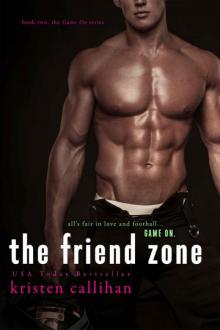 The Friend Zone
The Friend Zone Outmatched: A Novel
Outmatched: A Novel Managed: a VIP novel
Managed: a VIP novel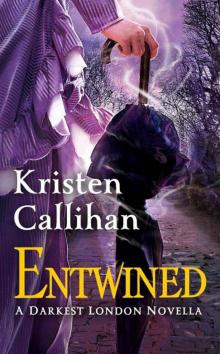 Entwined (Darkest London)
Entwined (Darkest London) Shadowdance: The Darkest London Series: Book 4
Shadowdance: The Darkest London Series: Book 4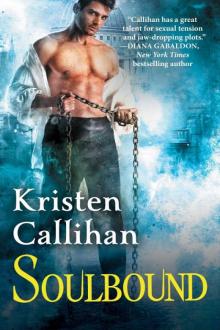 Soulbound
Soulbound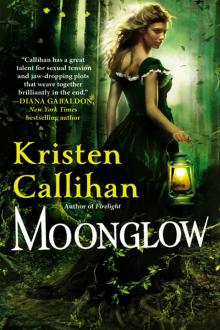 Moonglow
Moonglow Firelight
Firelight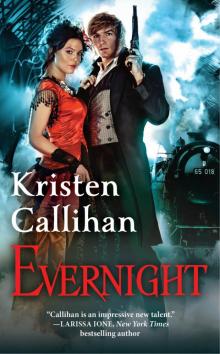 Evernight
Evernight The Game Plan (Game On #3)
The Game Plan (Game On #3)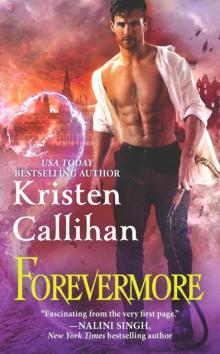 Forevermore
Forevermore Exposed (VIP Book 4)
Exposed (VIP Book 4) Ember: A prequel to Firelight
Ember: A prequel to Firelight The Hot Shot
The Hot Shot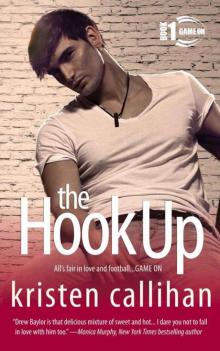 The Hook Up (Game On Book 1)
The Hook Up (Game On Book 1)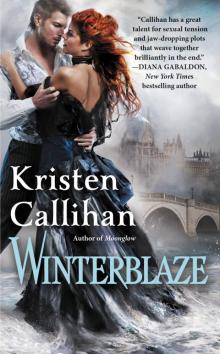 Winterblaze
Winterblaze